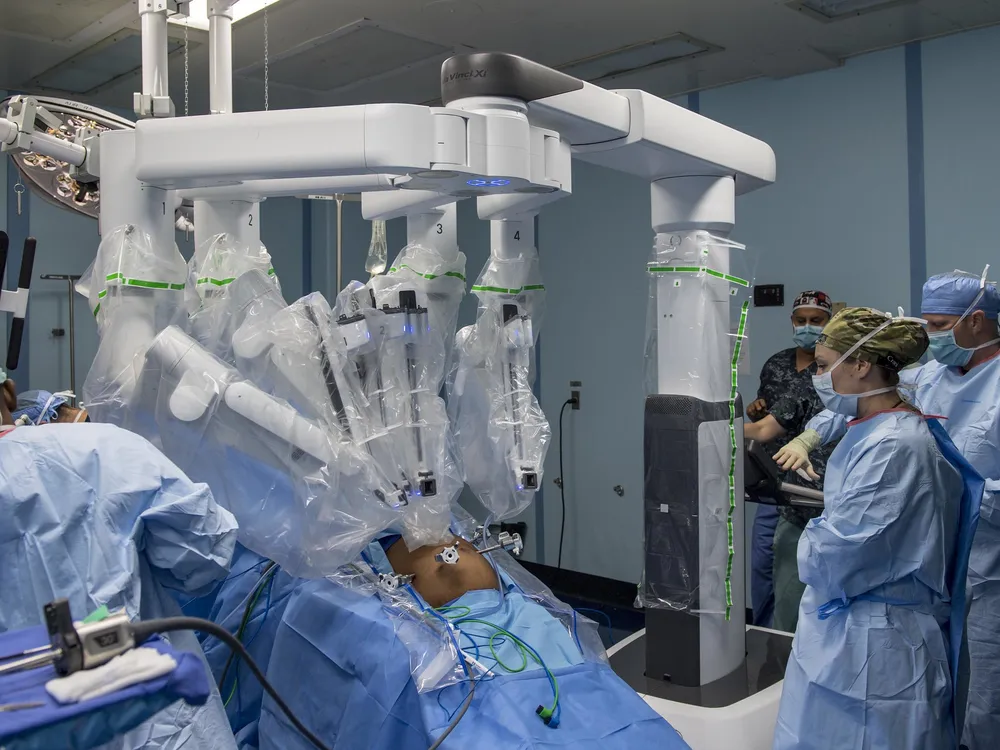
Why Robotic Technology is Transforming Gastrointestinal Surgery: Insights from Robotic Gastro Surgeons
In recent years, there has been a significant buzz surrounding the integration of robotic technology in gastrointestinal (GI) surgery. Patients and doctors alike are curious about its efficacy, safety, and long-term benefits.
Robotic surgery combines advanced software and hardware to assist surgeons in performing intricate procedures with enhanced precision and control. Unlike traditional methods where surgeons directly manipulate instruments, robotic surgery involves the surgeon's hand movements being translated into precise actions by robotic arms. This technology offers a magnified, three-dimensional view of the surgical field, minimizing hand tremors and allowing for more delicate maneuvers.
What Surgeons Are Saying About How Robotic Technology is Changing Gastrointestinal Surgery
Surgeons are pretty excited about how robots are changing the game in gastrointestinal (GI) surgery. They're seeing some real benefits that are making a big difference for patients.
Enhanced Precision and Control
Surgeons laud robotic technology for its ability to provide unparalleled precision and control during GI surgeries. A surgical gastroenterologist and head of the department at a leading hospital in Chennai, emphasizes the advantages of robotic arms in navigating complex anatomical structures with greater accuracy. He said that robotic surgery offers a magnified, three-dimensional view of the surgical field, minimizing hand tremors and allowing for more delicate maneuvers.
Improved Patient Outcomes
The adoption of robotic technology in GI surgery has led to improved patient outcomes, including reduced blood loss, shorter hospital stays, and faster recovery times. Studies conducted in India have shown promising results, with a significant decrease in postoperative complications and a higher rate of successful outcomes among patients undergoing robotic GI procedures compared to traditional approaches.
Comfort and Ergonomics
Surgeons appreciate the ergonomic benefits of robotic surgery, which allows them to operate comfortably for extended periods. Unlike traditional laparoscopic techniques that can cause fatigue and discomfort due to prolonged standing and hand movements, robotic surgery enables surgeons to perform procedures from a seated position with rested arms. This ergonomic advantage not only enhances surgical performance but also reduces the risk of fatigue-related errors, ultimately benefiting patient safety and outcomes.
Growing Acceptance and Adoption
Robotic technology is gaining widespread acceptance and adoption among surgeons in India. With advancements in robotic systems and increasing expertise in robotic-assisted procedures, more hospitals and medical institutions are incorporating robotic surgery into their treatment protocols. Surgeons are recognizing the value of robotic technology in achieving superior surgical outcomes and are increasingly recommending it as a preferred option for patients requiring GI surgery.
Safety and Efficacy of Robotic Surgery
Robotic surgery has garnered acceptance and recognition worldwide for its safety and efficacy. Extensive research and clinical experience have demonstrated its superiority in achieving optimal surgical outcomes with fewer complications. Studies have consistently shown lower blood loss, reduced postoperative pain, and shorter hospital stays for patients undergoing robotic GI surgery compared to traditional approaches.
Furthermore, robotic surgery offers a minimally invasive alternative for patients, with smaller incisions resulting in less scarring, faster recovery, and improved cosmetic outcomes. This less invasive approach translates to reduced postoperative pain and a quicker return to daily activities, enhancing the overall patient experience.
The Future of Robotic Gastrointestinal Surgery
As technology continues to evolve, so does the landscape of robotic surgery. Startups like Vicarious Surgical are pioneering innovative robotic systems designed to revolutionize procedures like hernia repair. By shrinking the size of robotic components and enhancing maneuverability, these next-generation systems aim to make surgery faster, less invasive, and more accessible to a broader range of patients.
Despite the challenges associated with introducing new technology into healthcare settings, the potential benefits of robotic surgery are undeniable. With ongoing advancements and strategic partnerships, the future holds promise for a more streamlined, efficient, and patient-centered approach to GI surgery.
Revolutionizing Gastrointestinal Surgery
Robotic technology is reshaping the field of gastrointestinal surgery, offering unprecedented precision, safety, and patient outcomes. While questions and concerns may persist, the evidence overwhelmingly supports the adoption of robotic techniques in complex GI procedures. As we look ahead, continued innovation and collaboration will drive further advancements, ultimately benefiting patients and healthcare providers alike.
Dr. Santosh Anand, an esteemed expert in robotic GI surgeries, boasts a track record of high success rates. With his extensive experience and specialized training, he offers patients meticulous care, ensuring optimal outcomes. His expertise instills confidence, making him a trusted authority in the field of robotic gastrointestinal surgery.
Looking for an expert in GI surgery? Book a consult with us.

